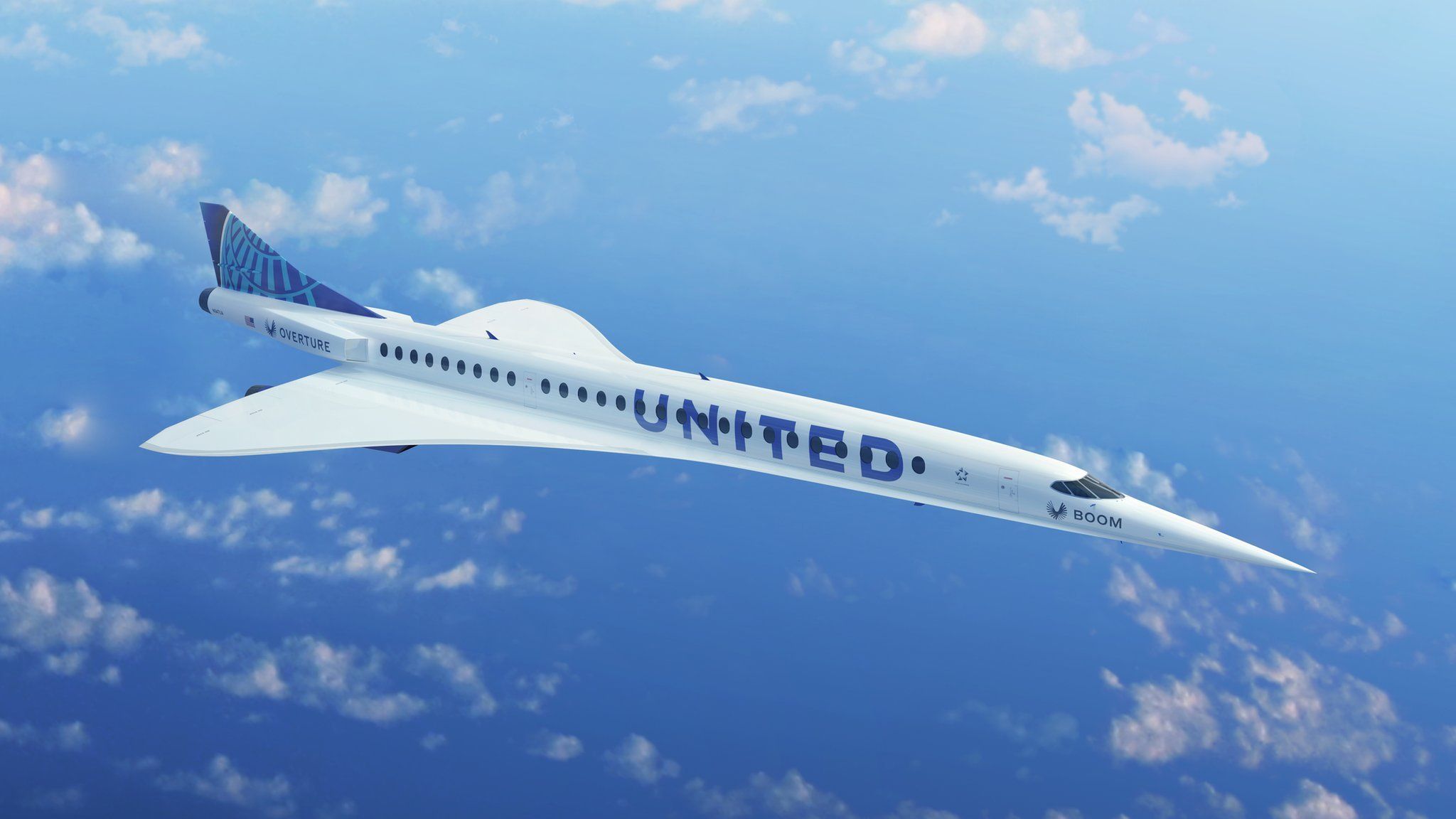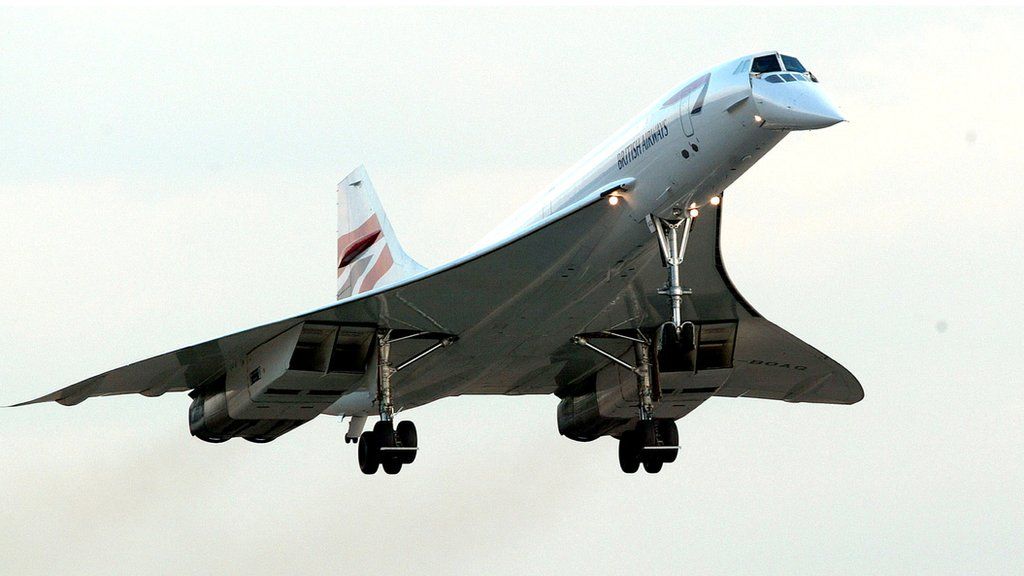United plans supersonic passenger flights by 2029
- Get link
- X
- Other Apps
By Chris Fox
Technology reporter
- Published
 IMAGE COPYRIGHTUNITED/BOOM
IMAGE COPYRIGHTUNITED/BOOMUS airline United has announced plans to buy 15 new supersonic airliners and "return supersonic speeds to aviation" in the year 2029.
Supersonic passenger flights ended in 2003 when Air France and British Airways retired Concorde.
The new Overture aircraft will be produced by a Denver-based company called Boom, which has yet to flight-test a supersonic jet.
United's deal is conditional on the new aircraft meeting safety standards.
What is supersonic flight?
Supersonic flight is when an aircraft travels faster than the speed of sound.
At an altitude of 60,000ft (18,300m), that means flying faster than 660mph (1,060km/h).
A typical passenger jet may cruise at about 560mph (900km/h) but Overture is expected to reach speeds of 1,122mph (1,805km/h) - also known as Mach 1.7.
 IMAGE COPYRIGHTREUTERS
IMAGE COPYRIGHTREUTERSAt that speed, journey times on transatlantic routes such as London to New York can be cut in half.
Boom says Overture would be able to make the trip in 3.5 hours, shaving three hours off the flight.
Concorde, which entered passenger service in 1976, was even faster with a maximum speed of Mach 2.04 - about 1,350mph (2180km/h).
What are some of the challenges?
There are two major concerns with supersonic passenger travel: noise and pollution.
Travelling faster than the speed of sound causes a sonic boom, which can be heard on the ground as a loud thunderclap or explosion. It's where the company Boom got its name.
The boom limits where the planes can fly. Typically they must lower their speed until they are out over the ocean, away from citizens who may be disturbed by the loud bang.
Boom says it is confident that its plane will not be any louder than other modern passenger jets while taking off, flying over land and landing. It also hopes improvements in aircraft design since Concorde will help it reduce and mitigate the sonic boom.
The other big issue is fuel consumption.
"In order to fly supersonic, you will need more power, you will need more fuel," Kathy Savitt, Boom's chief commercial officer, told the BBC.
But she expects Overture to be operated as a "net-zero carbon aircraft".
Can supersonic travel really be 'sustainable'?
Central to Boom's plan is for Overture to run entirely on sustainable aviation fuel (Saf).
That can take the form of "posh biodiesel" made out of everything from waste animal fat from the farming industry to specially grown high-energy crops, explains Dr Guy Gratton, associate professor of aviation and the environment at Cranfield University.
But one big problem is that "the world is very far from having anything like the production capacity needed" to produce enough biofuel to power the entire aviation industry, he says.
Boom predicts "power-to-liquid" processes - where renewable energy such as wind power is used to produce liquid fuel - will make up the shortfall.
"We expect that to be commercialised well before it's needed for our purposes," explains Boom's Raymond Russell.
"There are billions of dollars of both airline commitments and investments across the sector."
But it remains an industry that needs to be scaled up.
 IMAGE COPYRIGHTUNITED/BOOM
IMAGE COPYRIGHTUNITED/BOOM"Can you suddenly find an enormous additional supply of sustainable electricity at affordable prices?" asks Dr Gratton.
"I'm not saying it can't be done. It may well be done but it has not been done yet."
Is there demand for supersonic travel?
Despite the enormous cost of Concorde's development more than 50 years ago, it is thought to have been profitable for British Airways in its final years of operation.
Concorde was seen as a luxurious way to travel with tickets costing more than a first class seat on a regular jet.
Today, the wealthiest travellers may favour private business jets, says Dr Gratton.
Rather than travel first class on a commercial jet with the public, the rich can charter compact private planes that fly on demand, directly to-and-from their airports of choice. Avoiding the check-in desk and luggage carousel can shave time off travelling too.
Ms Savitt said Boom's research suggested passengers wanted speed and that faster planes could "deepen human connections and make better business relationships".
Unlike Concorde, the company expects Overture to be profitable for airlines even if tickets are sold for the same price as a "regular business-class fare".
Ultimately, it is up to United to set its prices - but it will want to see a return on its $200m-per-plane (£140m) investment.
Related Topics
- Published
- 16 October 2020
Comments
Post a Comment